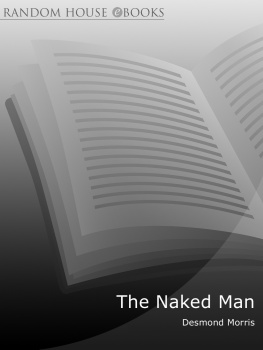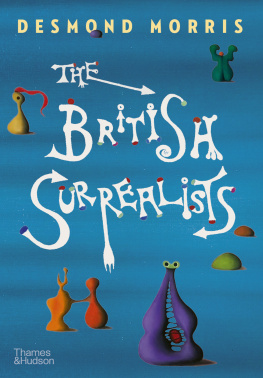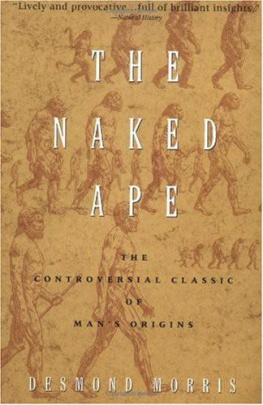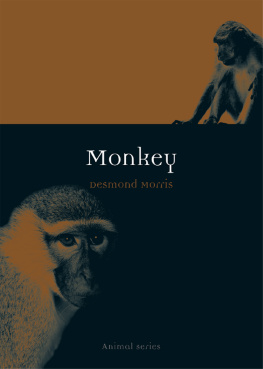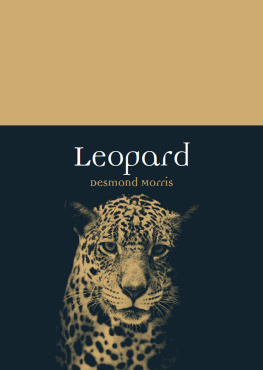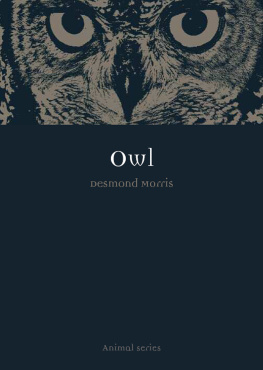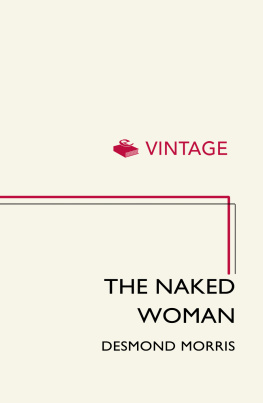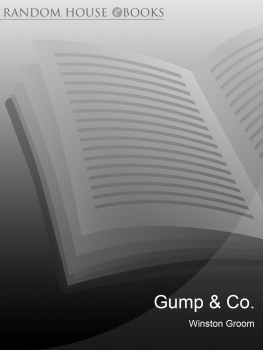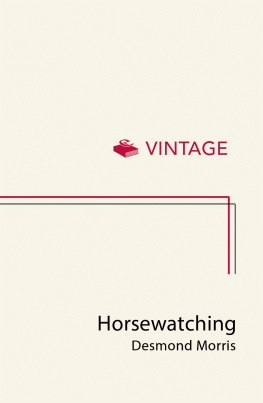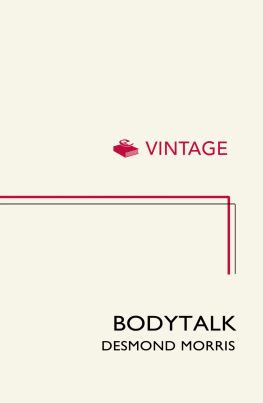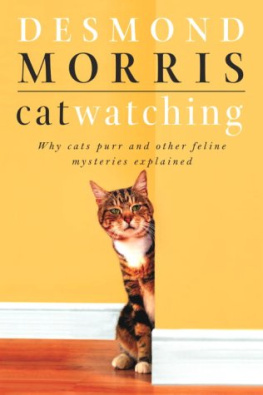DESMOND MORRIS - THE NAKED EYE
First published in Great Britain in 2000
ISBN 0091878675
9780091878672
INTRODUCTION
As a young man I was a poor traveller. I rarely ventured outside western Europe. This was due partly to lack of funds and partly to a fear of flying. As a child I had been involved in an air accident and my memory of human body-parts, in the wreckage of two aircraft that had collided in mid-air above me, remained all too vivid. I took my first, unavoidable flight when I was thirty-seven, certain that it would be my last. Surviving it was such a pleasant surprise that I lost my fear and became addicted to the idea of soaring aloft. Even then, however, my scope was limited by a ridiculously heavy workload.
All this changed when, to my even greater surprise, a book I had written in four weeks, The Naked Ape, became a bestseller. The resulting windfall meant that, at last, at the age of forty, I was free to go anywhere, anytime. I gave up my desk job in London, where I was the director of the Institute of Contemporary Arts, and with my wife, Ramona, set off in 1968 to explore the world.
In the thirty years that followed I made up for lost time. According to my records I have now clocked up a total of 281 foreign trips and visited a total of seventy-six different countries. I developed - and still possess - an insatiable urge to see every aspect of human activity. Ideally I would like to visit every culture in the world, but as there are over a hundred left to go, I know I will never make it.
The reason for my wanderlust is more than mere curiosity. As I have set myself the task of observing and reporting on human behaviour, it is vital that I see it in all its many forms and patterns. Nobody can write about the human species if they have only studied their own society. It is this thought that keeps me heading for Londons Heathrow airport, time after time.
The results of my observations of the human species have been published in sixteen books, from The Naked Ape of 1967 to The Human Sexes of 1997. But what is missing from those volumes is the more personal, anecdotal aspect of my travels. Many strange things have happened to me along the way, each of which has something to say about the place I was visiting and about the people I met there. In this book I will try to capture them in a series of brief sketches, of humanity as I have encountered it during my travels in search of the human species...
EXPLORING THE MALTESE ISLANDS (1968-1974)
When we chose the Maltese islands as our base from which to explore the mediterranean world, ramona and i knew remarkably little about its social history. We had dashed out there for a quick visit in the autumn of 1967 and, following a whirlwind tour of available property, had bought a vast, thirty-roomed house, the villa apap bologna, in the very centre of the main island; it was impulse buying on a grand scale.
Less than four months later we were living there, enjoying the novelty of the relaxed, sun-baked dolce vita, a startling contrast to the high-pressure, work-dominated london existence we had left behind. having money for the first time in our lives, it was our calculated intention to spend it as fast as possible and then get back to work in london. Instead of playing safe and hoarding the unexpected windfall from a best-seller, we were going to use our temporary freedom to experience another culture -one that was entirely new to us.
(Please note that social attitudes in malta have undergone major changes since the sixties.)
THE CLOCKWORK CENSOR
What has attracted us to Malta are its friendly people, its impressive architecture, its glorious climate, its central position in the Mediterranean, and the fact that the English language is widely understood. What we have not bargained for, coming from London at the height of the swinging sixties, is the oppressive censorship and the sweeping power of Maltas religious leaders.
After arriving at the Villa, it does not take us long to discover that the Catholic Church in Malta, with the diminutive Archbishop Gonzi at its head, is almost medieval in its attitudes. Without realizing it, we have chosen to move to the only country in the world where my books are being systematically burned by the Church. At first this makes me uneasy, but as time passes it becomes clear that I will be left in peace. The Maltese people have such a generous nature that they are happy to have me as a visitor, despite the fact that my book The Naked Ape is officially banned. Intrigued by this double standard, I try to find out if there is a list of prohibited books. I am told that there is a kind of list, but that it is not publicly available. It does not set out all the forbidden titles in the world, but simply records those that have arrived in Malta, been confiscated and then been destroyed. In other words, a book is considered innocent until it is proven imported by a Maltese citizen. It is then subjected to trial by censor and, if found guilty, is thrown in a furnace.
So the Banned Iisf shows only books that have been caught in the censors net, not those that might one day be found. I discover that Maltas Post Office Act empowers the Postmaster General to open mail other than sealed letters if he suspects it to contain anything indecent, obscene, impious or seditious and to destroy it if his suspicions are confirmed. Since The Naked Ape views man as an animal, supports the theory of evolution and discusses human sexual behaviour in some detail, it qualifies for a triple burning if that were possible. No wonder it is on the infamous list.
I am fascinated to know the names of the other authors on the list. With whom do I share the honour of being a forbidden fruit? A local journalist, who shall be nameless, helps me out. He manages to have a copy of the list made for me and passes it to me with great secrecy, as if it contained the plans for a nuclear device. I cannot believe what I read. The names on the list are astonishing. Has the Church gone mad?
Instead of being insulted, I am now deeply flattered, for my disbelieving eyes tell me that I share the list with none other than Balzac, Stendhal, Voltaire and Zola. The Maltese authorities, in this modem age, the late sixties, have been burning copies of Stendhals Scarlet and Black and my favourite book of all time, Voltaires Candide. Scarlet and Black was first published in 1830, and Candide, even earlier, in 1759. The mind boggles.
What makes the list even more bizarre is that it is not in alphabetical order, but in order of book importation. The result is that, right next to some famous literary work, there is often a sleazy, soft porn title. The censor obviously had little doubt about what to do with Keep it Kinky, Until She Screams, Young Topless, Sex Trap or Slaves to Sin. Straight into the furnace with the lot of them. But mixed in among them, apart from literary classics, are recent novels by such established figures as Kingsley Amis, Mary McCarthy, Nicholas Monsarrat, Alan Sillitoe and even dear old Leslie Thomas, who beats them all by having two novels banned.
Educational sex manuals are also consigned to the flames. There they go... watch them bum in hell... The Psychology of Sex, Sexual Responsibility in Marriage, Sexual Happiness in Marriage, The Search for Sexual Enjoyment, The Truth about the Pill, Sex Manners for the Single Girl, The ABZ of Love.
I am so fascinated by this pious book-burning that I decide to make some further enquiries. I still find it hard to believe that the Banned list is real. It must surely be a joke played on me by the journalist who supplied the list. But sadly this proves not to be the case. When I visit the few bookshops that exist in Valletta and ask for certain tricky titles, I am told that they cannot be ordered and sold to me, but that if, the next time I fly into Malta, I bring them with me for my personal use, that will be allowed. As a visitor I can read them, but the Maltese people themselves must not be allowed to see them. So it is true. In the literary sense, Malta is living in the Dark Ages.
Next page

